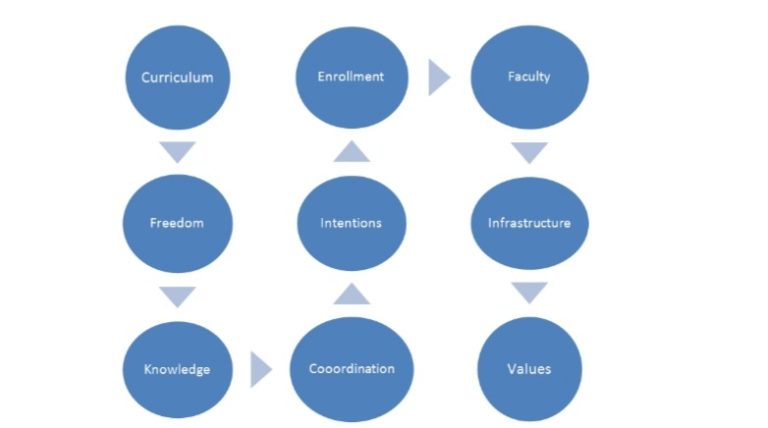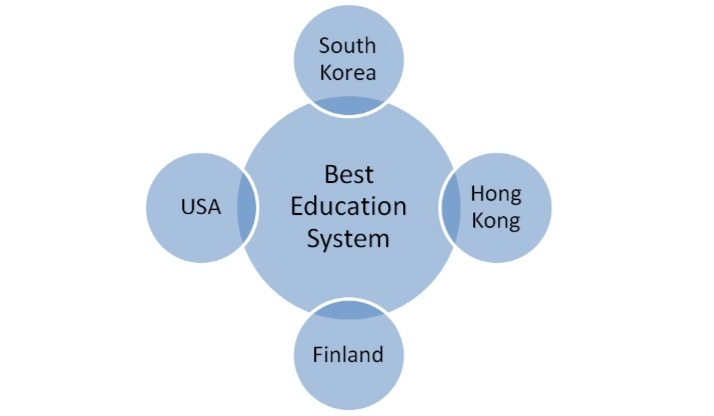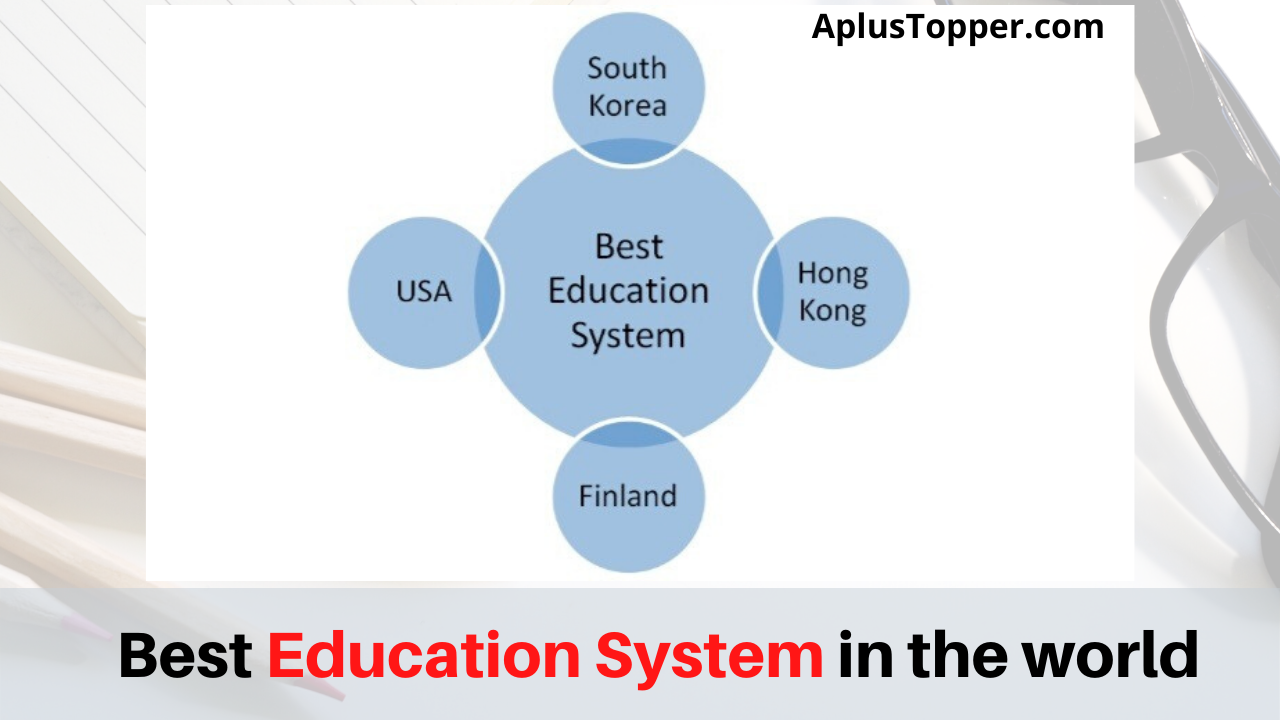The best education system in the world: Education, like healthcare and food, is a basic fundamental right of every citizen in every country. No forces of nature should stop anyone from getting an education because simply put, education is power.
Countries fight elections over trivial things like war and religion, but never on education, which is a truly upsetting and unfortunate turn of events. But this should not be a reason for people not to fight to get free and fair education that they deserve
There are many countries in the world that have made education free for their citizens. Because a well-educated citizen can bring laurels to their country and change the course of the dynamics of our society
But before we start discussing some of the best education systems in the world, let us answer a few fundamental questions
Questions that need to be immediately addressed are:
- Is education just about teaching student’s science and mathematics?
- Is education important only to find a job?
- Is education shadowed by political powers?
- Does getting a degree make you an educated person?
- Is our education system knowledge-driven or marks driven?
- What Constitutes a Good Education System?
- Countries with the Best Education System in the World
These are some of the burning questions that are haunting academicians and policymakers world over. There is no one proper definition for education and anyone who says otherwise is not educated enough!
In this part of the article, we will try to answer some of the questions mentioned above
Is education just about teaching students science, arts, history or mathematics?
Not necessarily. Of course, a student needs to be thought about geography, history, science and mathematics for them to have a bright and illustrious career ahead. But education is not confined to these subjects. Students need to be thought much more than this.
Ethics, integrity, humanitarian values, the survival of the fittest and many other aspects that help them be a law-abiding honest and wise citizen which helps them in creating a better world are vital aspects of education for a student. Students are gullible and are of a fresh mindset. Anything that is taught in childhood will remain with them forever.
Is education important only to find a job?
Definitely not. Unfortunately the perception of the education systems, especially in countries like India, in that it is important only to find jobs and earn money. The government, academicians, teachers, students and parents are collectively to be blamed for this type of mentality
A good education can indeed fetch you a good job, but that is the secondary intention of a good education. Being a better human being with good acumen and common sense and inculcating humanitarian values in students still is the primary intention of the education system.
Is education shadowed by political powers?
It pains us to say that, the education system is in most parts of the world, including India, is overshadowed by political and social influence. Science and mathematics can be an exception, but curriculum and syllabus in subjects like history and geography vary time to time depending on the political and social situation in the country
History can be blurred and modified by historians giving into propaganda other hidden agendas. This is a sorry state of affairs in our education system, which needs to be addressed immediately. Education systems should be truly independent without the influence of any power in the country.
Does getting a degree make you an educated person?
Do you think anyone and everyone graduating from top universities and institution around the world is really “educated”?
Again, not necessarily. Because education comes from the deeds we do and not a piece of papers. A person might be a topper in all the subjects and might have done well in his or her career, but if he or she does not have humanitarian value and are crooked minded, then what is the pit of education?
Is our education system knowledge-driven or marks driven?
Well, it is supposed to knowledge-driven but due to various faulty reasons, the system has somehow become marks driven. Students are thought subjects in the classroom to top exams, and not to help them gain real knowledge
A part of the blame is on government and a part of school authorities and faculties for this situation of our education system
There are plenty of reasons, other than the ones mentioned above, on why our education system has so many flaws and is not up to the par. The sole intention of an educational institution is to make students truly educated people. But the real truth about education systems in certain countries is far from that. From making money to promoting propaganda, education has always become a scapegoat for evil forces.
Hence, let us answer this fundamental question here
What Constitutes a Good Education System?

- Good curriculum:
Education curriculum according to the culture and dynamics of the country. It is the academicians and experts that design the curriculum and they need to keep all the local factors of the country in mind. - Enrolment:
Getting students to schools in primary and secondary education is a challenge that countries need to address Government and other responsible bodies should conduct awareness campaigns to make sure the less privileged get to go to school without any hindrance. - Qualified faculty:
Well trained faculty to schools is the responsibility of the government. There should be proper institutes in place to rain teachers. We emphasise on this because, at the end of the day, it is the teachers that nurture the students. They need to be well equipped with all the required competencies for the job. - Infrastructure:
For all-round development of a kid, the proper environment should be built around them. Digital infrastructure to physical infrastructure, a school should have it all to be a true best education systems in the world. - Humanitarian values:
Inculcate moral science and other such subjects in the curriculum. Students can grow up to be a doctor or a scientist or an engineer but the education system should also be such that students grow up to be a good human being. - Coordination:
Proper coordination between all the stakeholders such as government, parents and teachers. The education system can be improved only if everyone takes part in it effectively. - Knowledge:
An education system should be knowledge-driven and not marks driven. A school should not be a certificate-granting institute. Students should be thought to gain knowledge and not grades. - Intentions:
Teach students for the intention of gaining knowledge and not jobs. The intentions should be made clear. This holds importance, especially in primary and secondary education. The system should be designed such that students make their own decisions later on about their career. An education system should only be medium for children to grow up to be independent. - Freedom:
Freedom from influential powers such as business, politics. The education system and the concerned authorities and schools should be truly independent in functioning.
In this article, we list out the following factors that can make a country’s education systems the best in the world
Let us explain each of the factors by taking examples of best education systems around the world
Countries with the Best Education System in the World

Education System in South Korea
South Korea is considered to be one of the best education systems in East Asian Countries. Many countries across the globe try to imitate and replicate South Korea’s education systems.
So what makes South Korea’s education system good?
- Synchronization of curriculum and examsSouth Korea takes it college and school examination so seriously, so much so that places come to a standstill on days of public examinations such as the university entrance examination and traffic is stopped and planes will be diverted to minimize noise. This is the amount of value they put on their children’s education
The curriculum is dominated by languages, mathematics and science. English has become a very important element of social mobility.Their education system reflects a strong overlap between the test questions and the exam-driven curriculum that schools focus on, as well as the hard work by the pupils and the strong support/pressure from parents to succeed. - Culture of diligenceIn South Korea, the education systems give due diligence to every desires and ambition of students. There aptitude and talents are nurtured accordinglyThe customization of education and the importance they give to student’s mindset helps students develop a keen interest in the education imparted to them.
Education System in Hong Kong
Hong Kong was built on hard work, as a refugee society. There was no in-built class system and the way to achieve social mobility was through education.
Some of the things Hong Kong has done to their education system are:
- PedagogyThere’s a mix of academic rigour and structure. There’s a theory of learning behind everything. They don’t do a project just for the sake of doing it – there’s a framework of learning.
- InfrastructureFor all-round development of the child, he or she should study in a healthy and competitive environment. School should have facilities like sports parks, libraries, clubs, digital classrooms, etc so that students nurture their abilities in all fields.
- Enrolment rateHong Kong conducted massive awareness campaigns across many regions that resulted in an increase in student enrollment for primary and secondary education in their schools.
Getting students to come to school and changing the mindset of parents is one of the big challenges that education systems faces and Hong Kong has cracked the code in this area!
Education System in Finland
https://www.youtube.com/watch?v=nHHFGo161Os
There is plenty of rating agencies around the world that rate an education system on the basis of various factors and Finland seems to have topped in these ratings for more than 2 years now.
So how did Finland achieve this?
- Teacher to student ratioTeacher to student ratio was kept low so that each student got the required care and attention from the students.
- EnrolmentMass enrollment happened in Finland that helped its education systems make drastic changes to its infrastructure and academics
- Local powerMunicipalities and schools have a lot of power to localize the national core curriculum. They trust their teachers as they have been selected through a careful process. They are given a lot of freedom and responsibility to tailor learning according to the needs of every child. They are not just paying lip service or following a script.
- No examinationsClass sizes are between 15 to 25 across primary and secondary schools. There are no national examinations or rankings. They don’t have that culture of comparing schools. If a school is not doing well, it is not closed down. It is given more resources of they do well. The completion is between schools and not between students.
Education System in USA
The United States of America has great education systems. Some of the top universities in the world are from the USA, such as
- Harward University
- Stanford University
- Warton University
- CalTech
The USA also has the best primary and secondary education in the world.
In a country like India, schooling is seen to be a process of certification. Questions are being asked as to whether the system is producing the sorts of people the economy and society needs. The system does encourage hard work and diligence but the concerns are that it is unduly stressful, does not promote creativity and the ability to be critical.
Policymakers, academicians and school authorities can take a cue from these countries to build a robust education system in countries like India. But it would be wrong for us to blindly replicate all the factors mentioned above.
Each country will have its own culture and population dynamics. An education system needs to be tailored to meet and synchronize with these dynamics.
Lastly, to build a good education system, everyone from the government to the public should put efforts, only then a country like India can have truly the best education systems in the world.
